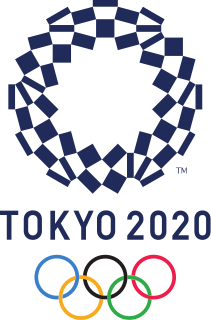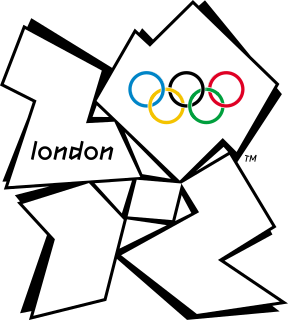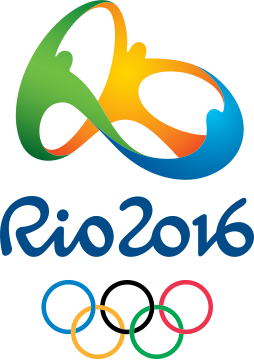
The International Olympic Committee is a non-governmental sports organisation based in Lausanne, Switzerland. Created by Pierre de Coubertin and Demetrios Vikelas in 1894, it is the authority responsible for organising the modern Summer and Winter Olympic Games.

The modern Olympic Games or Olympics are leading international sporting events featuring summer and winter sports competitions in which thousands of athletes from around the world participate in a variety of competitions. The Olympic Games are considered the world's foremost sports competition with more than 200 nations participating. The Olympic Games are held every four years, with the Summer and Winter Games alternating by occurring every four years but two years apart.

The Summer Olympic Games or the Games of the Olympiad, first held in 1896, is a major international multi-sport event held once every four years. The most recent Olympics were held in Rio de Janeiro, Brazil. The International Olympic Committee (IOC) organises the Games and oversees the host city's preparations. In each Olympic event, gold medals are awarded for first place, silver medals are awarded for second place, and bronze medals are awarded for third place; this tradition began in 1904. The Winter Olympic Games were created due to the success of the Summer Olympics.

The Winter Olympic Games is a major international multi-sport event held once every four years for sports practiced on snow and ice. The first Winter Olympic Games, the 1924 Winter Olympics, were held in Chamonix, France. The modern Olympic Games were inspired by the ancient Olympic Games, which were held in Olympia, Greece, from the 8th century BC to the 4th century AD. Baron Pierre de Coubertin founded the International Olympic Committee (IOC) in 1894, leading to the first modern Summer Olympic Games in Athens, Greece in 1896. The IOC is the governing body of the Olympic Movement, with the Olympic Charter defining its structure and authority.

The 1936 Summer Olympics, officially known as the Games of the XI Olympiad, was an international multi-sport event held in 1936 in Berlin, Nazi Germany. Berlin won the bid to host the Games over Barcelona, Spain, on 26 April 1931, at the 29th IOC Session in Barcelona. It marked the second and final time the International Olympic Committee gathered to vote in a city that was bidding to host those Games.

The 2000 Summer Olympic Games, officially known as the Games of the XXVII Olympiad and commonly known as Sydney 2000 or the Millennium Olympic Games/Games of the New Millennium, were an international multi-sport event which was held between 15 September and 1 October 2000 in Sydney, New South Wales, Australia. It was the second time that the Summer Olympics were held in Australia, and also the Southern Hemisphere, the first being in Melbourne, Victoria, in 1956.

The 1996 Summer Olympics, officially known as the Games of the XXVI Olympiad, commonly known as Atlanta 1996, and also referred to as the Centennial Olympic Games, were an international multi-sport event that was held from July 19 to August 4, 1996, in Atlanta, Georgia, United States. These Games, which were the fourth Summer Olympics to be hosted by the United States, marked the centenary of the 1896 Summer Olympics in Athens—the inaugural edition of the modern Olympic Games. They were also the first since 1924 to be held in a different year from a Winter Olympics, under a new IOC practice implemented in 1994 to hold the Summer and Winter Games in alternating, even-numbered years.

The 2004 Summer Olympic Games, officially known as the Games of the XXVIII Olympiad and commonly known as Athens 2004, was a premier international multi-sport event held in Athens, Greece, from 13 to 29 August 2004 with the motto Welcome Home.

The 2008 Summer Olympic Games, officially known as the Games of the XXIX Olympiad and commonly known as Beijing 2008, was an international multi-sport event that was held from 8 to 24 August 2008 in Beijing, China.

The 1988 Summer Olympics, officially known as the Games of the XXIV Olympiad, was an international multi-sport event celebrated from 17 September to 2 October 1988 in Seoul, South Korea.

The 1984 Summer Olympics, officially known as the Games of the XXIII Olympiad, was an international multi-sport event that was held from July 28 to August 12, 1984, in Los Angeles, California, United States. This was the second time that Los Angeles had hosted the Games, the first being in 1932.

The 2010 Winter Olympics, officially known as the XXI Olympic Winter Games and commonly known as Vancouver 2010, informally the 21st Winter Olympics, was an international winter multi-sport event that was held from 12 to 28 February 2010 in Vancouver, British Columbia, Canada, with some events held in the surrounding suburbs of Richmond, West Vancouver and the University Endowment Lands, and in the nearby resort town of Whistler.

The Olympic symbols are icons, flags, and symbols used by the International Olympic Committee (IOC) to elevate the Olympic Games. SomeTemplate:M dashsuch as the flame, fanfare, and themeTemplate:M dashare more commonly used during Olympic competition, but others, such as the flags, can be seen throughout the years. The Olympic flag was created under the guidance of Baron Coubertin in 1913 and was released in 1914. But it was first hoisted in 1920 in Belgium at the Antwerp Olympic games in the main stadium.

The 2014 Winter Olympics, officially called the XXII Olympic Winter Games and commonly known as Sochi 2014, was an international winter multi-sport event that was held from 7 to 23 February 2014 in Sochi, Krasnodar Krai, Russia, with opening rounds in certain events held on the eve of the opening ceremony, 6 February 2014.

The 2018 Winter Olympics, officially known as the XXIII Olympic Winter Games and commonly known as PyeongChang 2018, was an international winter multi-sport event that was held between 9 and 25 February 2018 in Pyeongchang County, Gangwon Province, South Korea, with the opening rounds for certain events held on 8 February 2018, the eve of the opening ceremony.

The 2020 Summer Olympics, officially known as the Games of the XXXII Olympiad and commonly known as Tokyo 2020, is an upcoming international multi-sport event that is scheduled to take place from 24 July to 9 August 2020 in Tokyo, Japan.

The 2012 Summer Olympics, formally the Games of the XXX Olympiad and commonly known as London 2012, was an international multi-sport event that was held from 27 July to 12 August 2012 in London, United Kingdom. The first event, the group stage in women's football, began on 25 July at the Millennium Stadium in Cardiff, followed by the opening ceremonies on 27 July. 10,768 athletes from 204 National Olympic Committees (NOCs) participated.

The 2024 Summer Olympics, officially known as the Games of the XXXIII Olympiad, and commonly known as Paris 2024, is a forthcoming international multi-sport event that is scheduled to take place from 26 July to 11 August 2024 in Paris, France.

The 2028 Summer Olympics, officially known as the Games of the XXXIV Olympiad, and commonly known as LA 2028, is a forthcoming international multi-sport event that is scheduled to take place from July 21 to August 6, 2028, in Los Angeles, California, United States.























